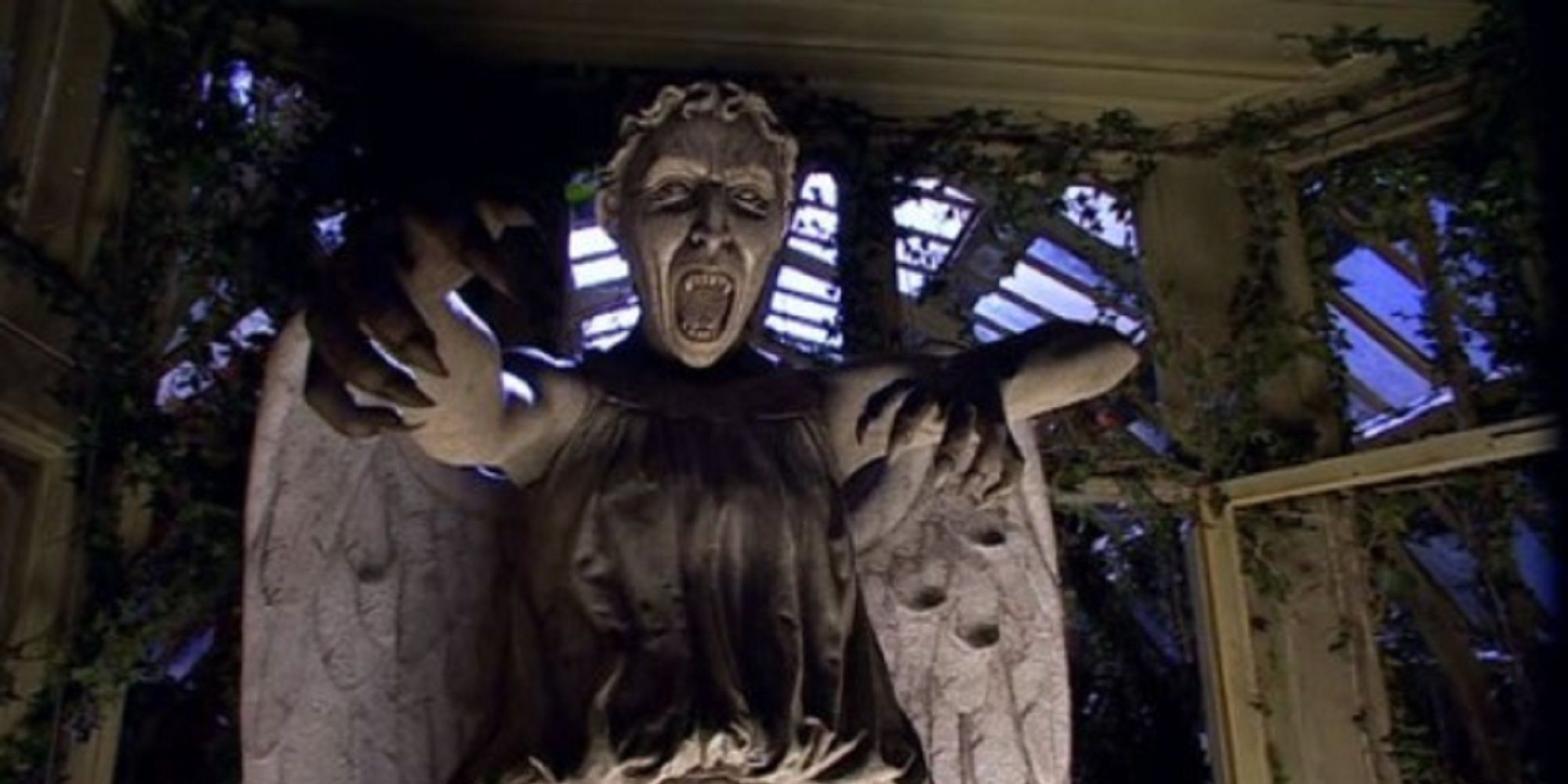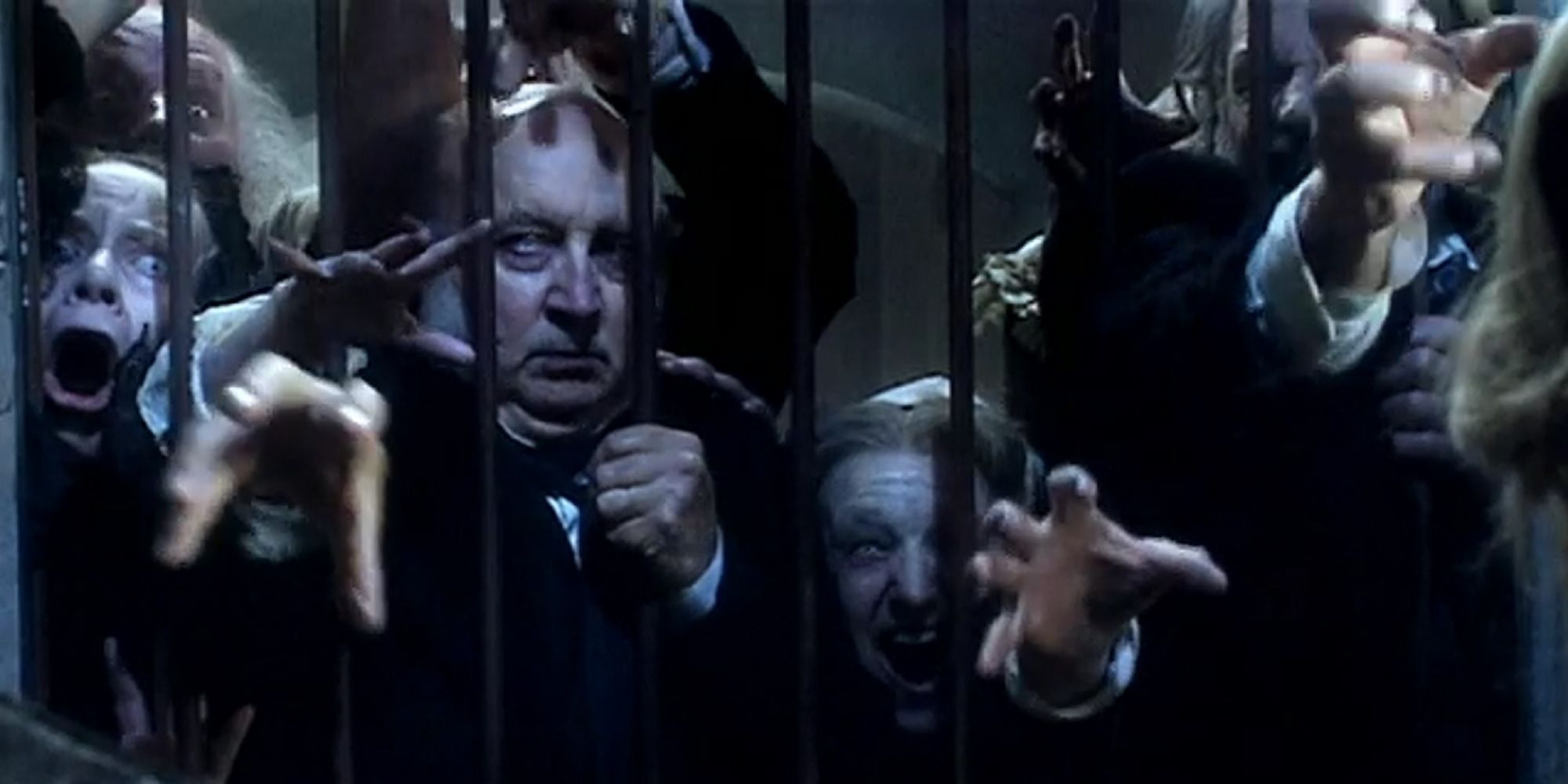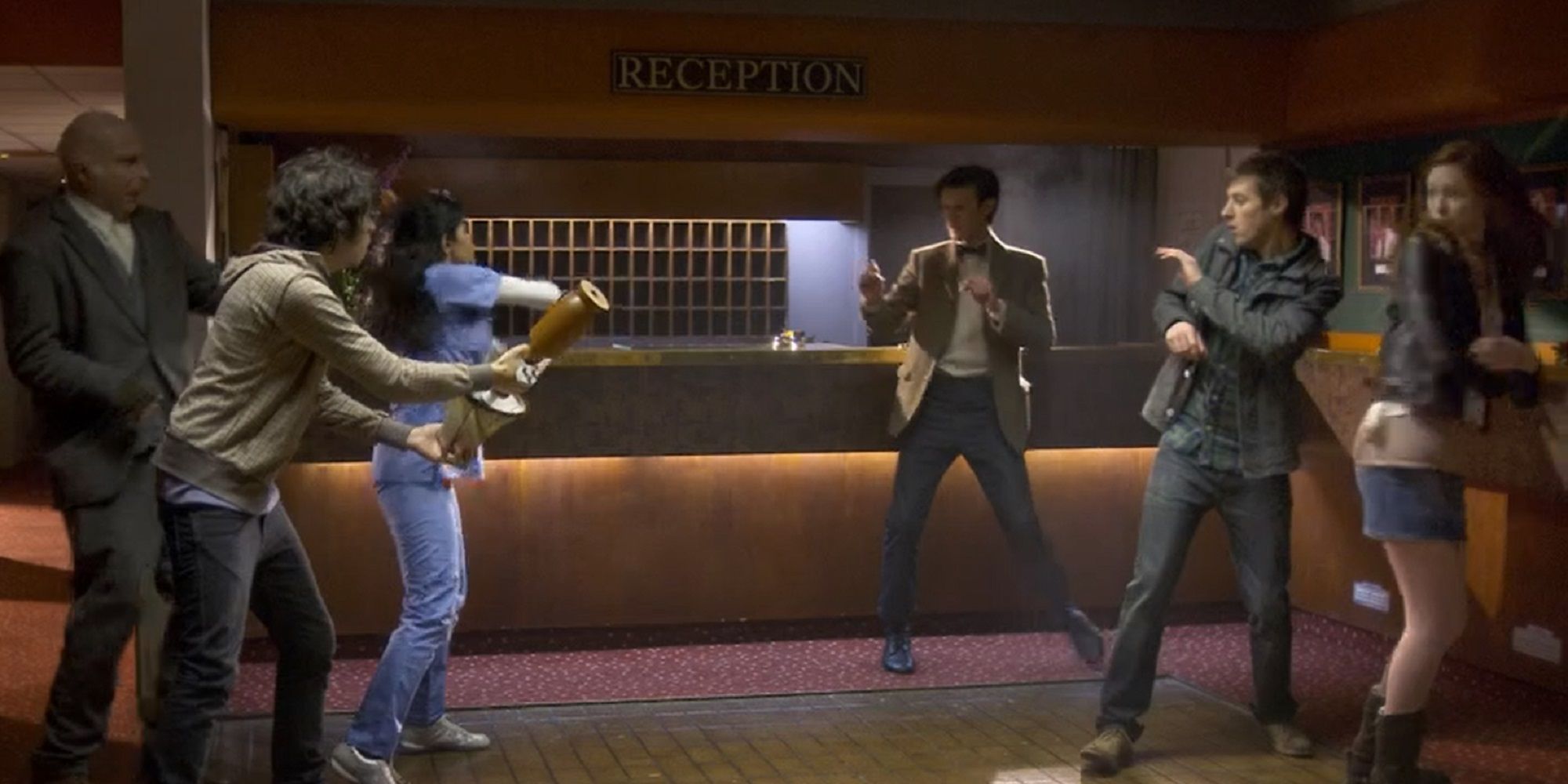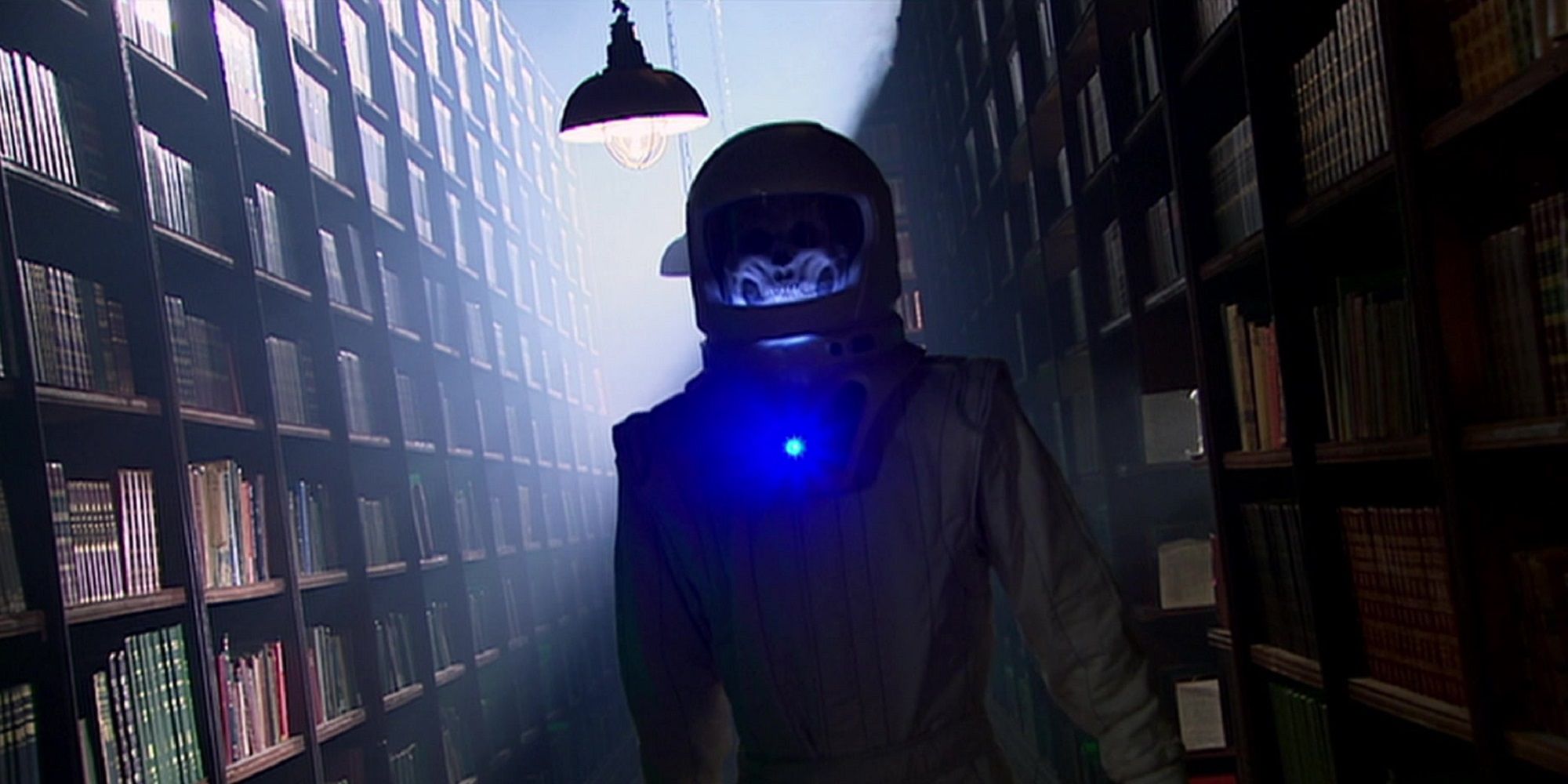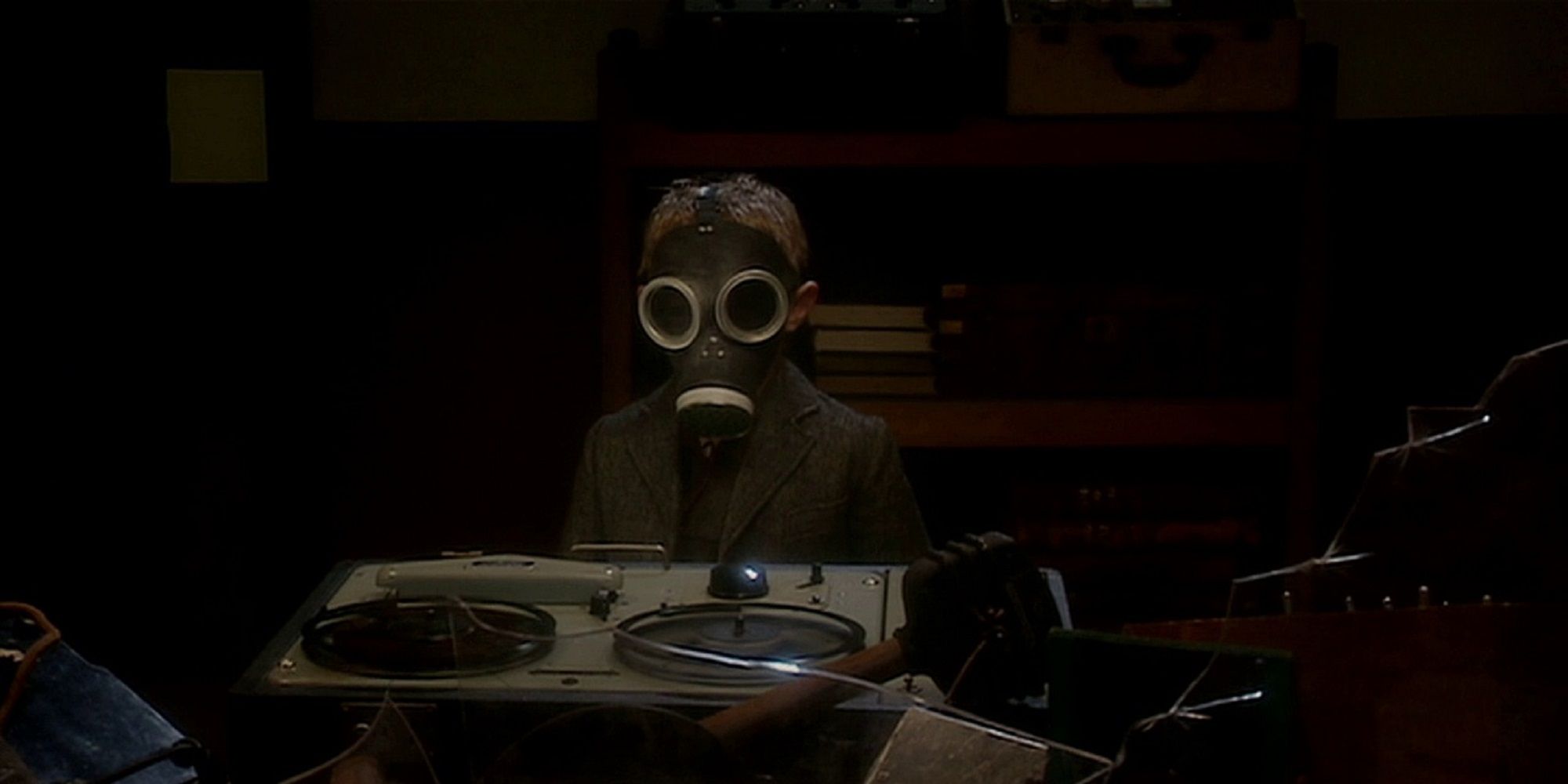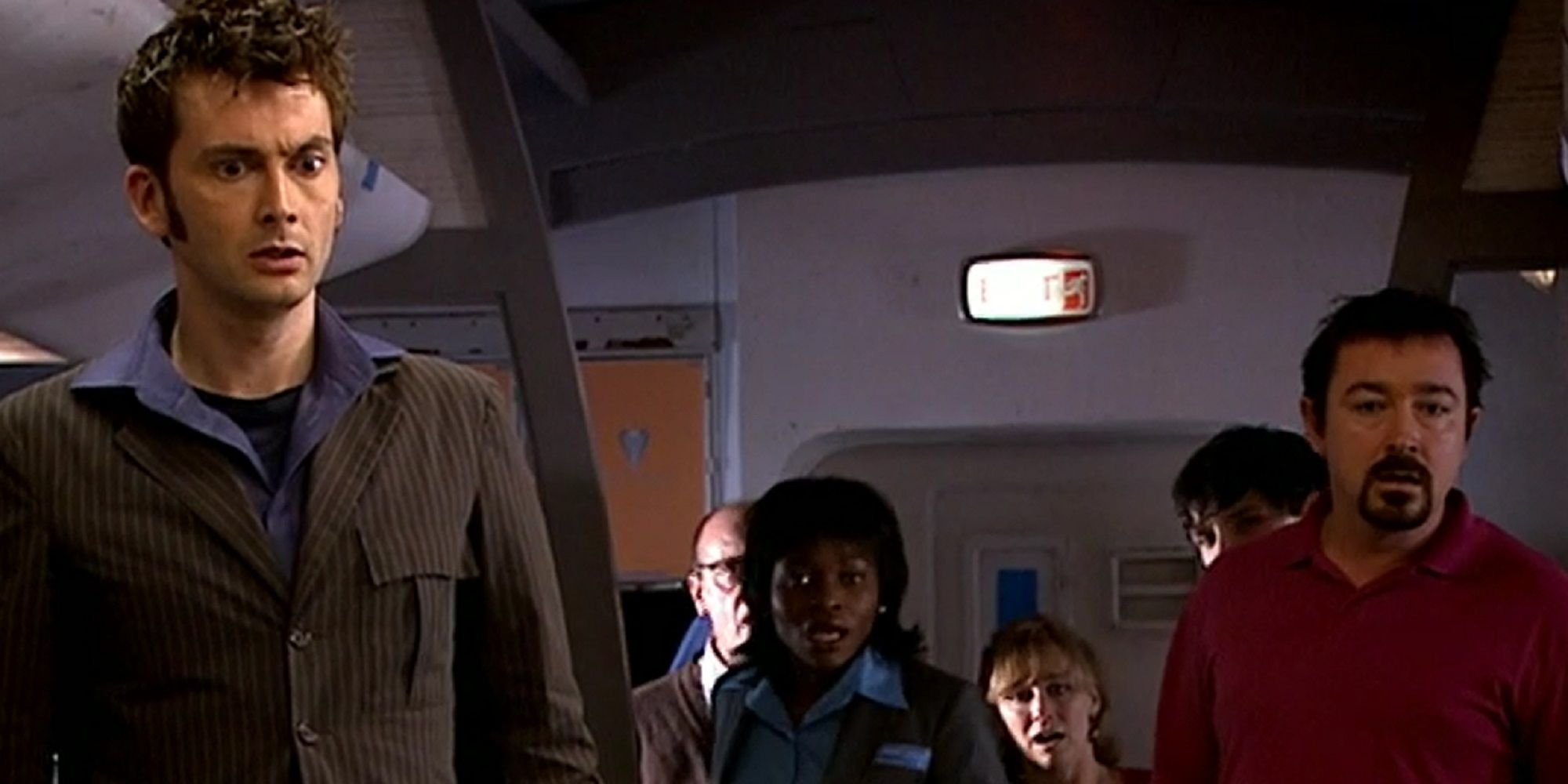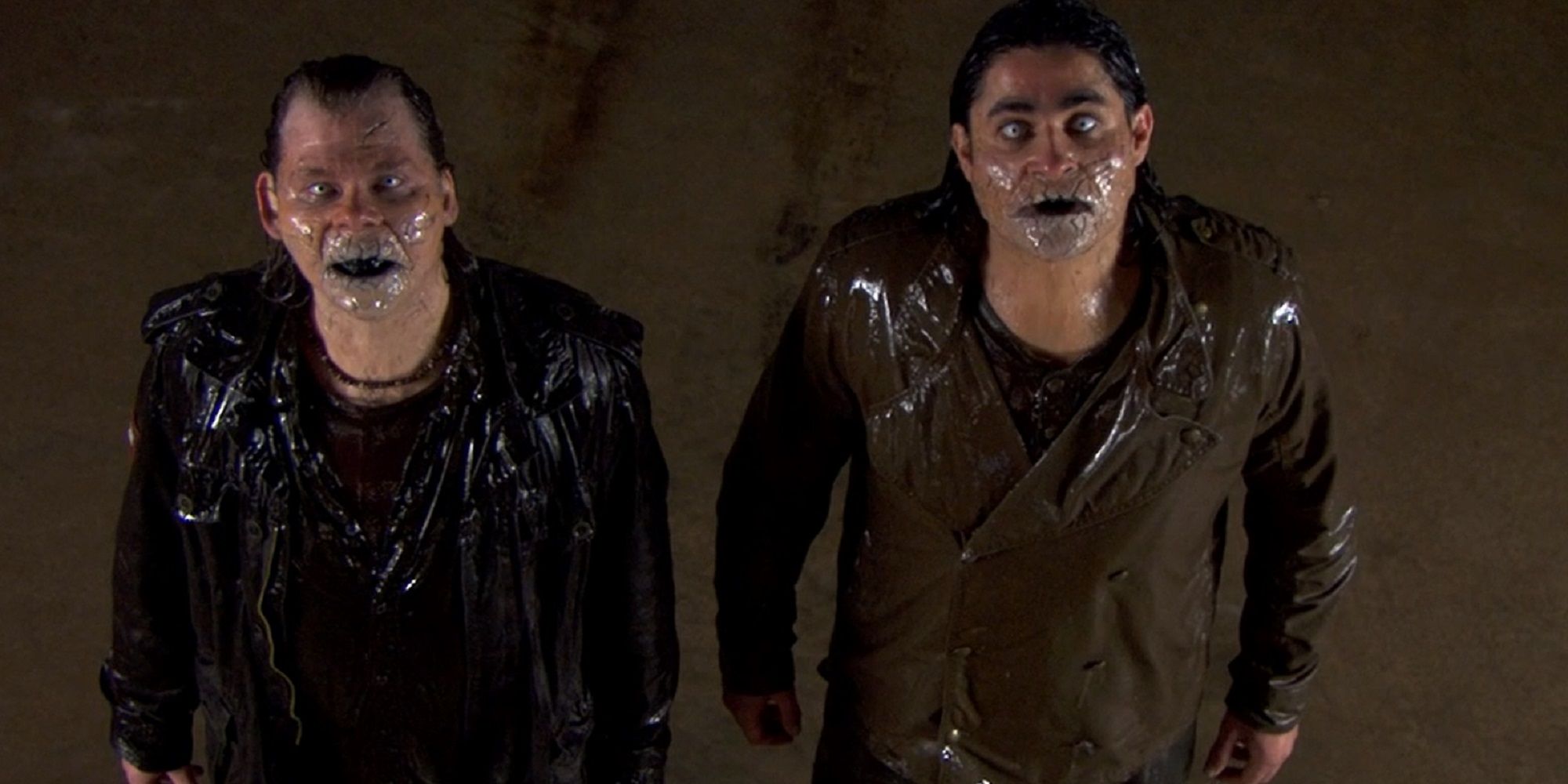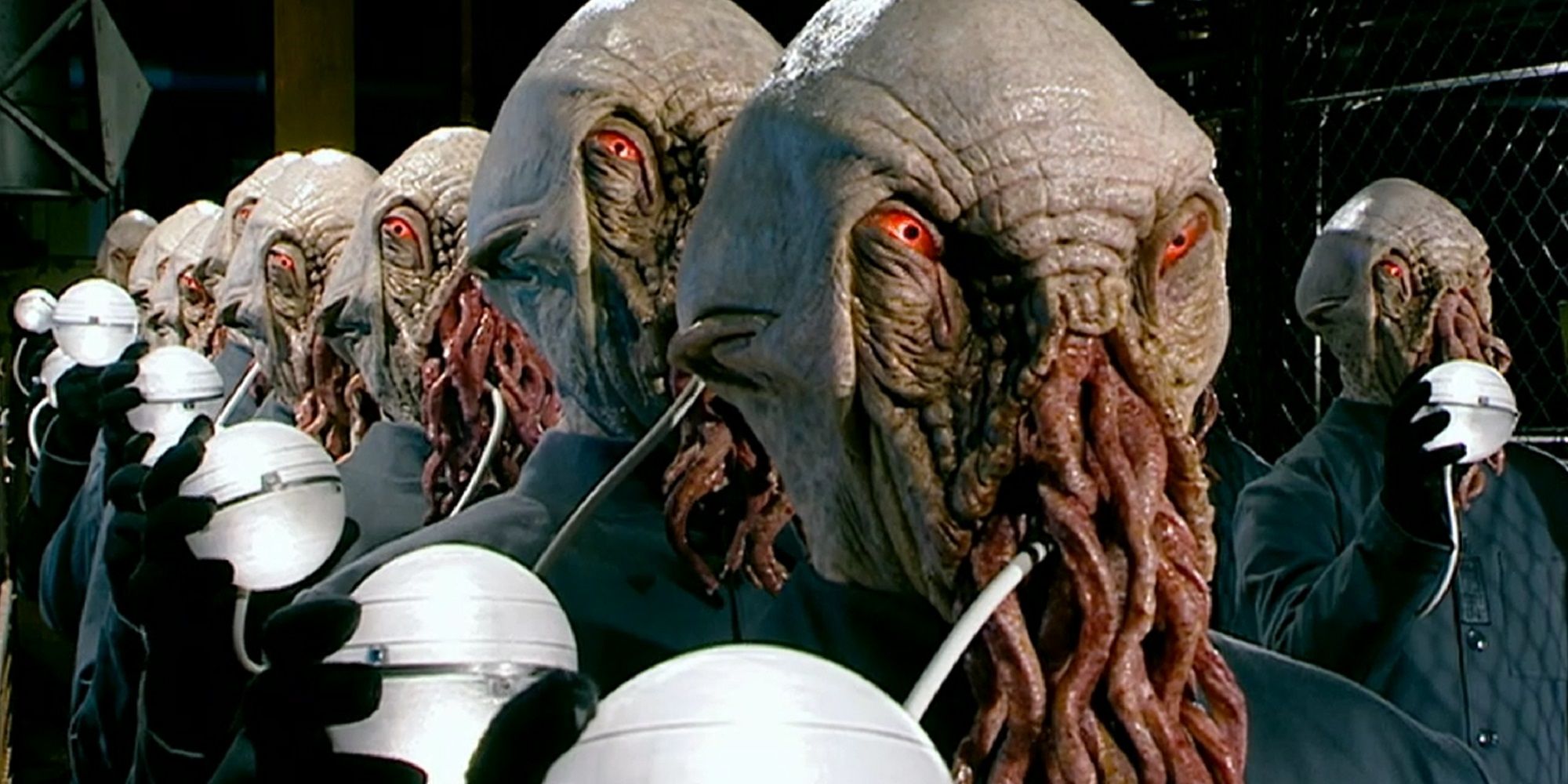Traveling in the TARDIS with the Doctor sounds like it would be a lot of fun. Anywhere in the universe and any historical moment right at your fingertips – who would say no to that? You could spend your morning sunbathing in Ancient Greece, then after lunch with Sigmund Freud, you can catch a live performance from The Beatles.
Unfortunately, things don’t often work out like that. It just so happens that much of time and space seems unreasonably full of some of the darkest, meanest, most horrifying villains imaginable, and the Doctor doesn’t seem to be able to go five minutes without bumping into one. So, the next time a madman brandishing a screwdriver asks if you fancy a ride in his phonebox, take a look at some of the scariest episodes in Doctor Who history first. It might have you rethinking your answer.
"The Unquiet Dead"
If you’re writing a Doctor Who horror story set in the Victorian period, and you don’t ram it full of creepy funeral parlors, a wonderfully hammy Charles Dickens (courtesy of Simon Callow), and as many whispering CGI ghouls as the budget can handle, you’re not really doing it right, are you? “The Unquiet Dead” does an excellent job of embracing both the look and style of the era (you know you want to hear a cynical, Scrooge-like Dickens bitterly refer to things as “tommyrot”) and the literary conventions of its historical guest star.
The episode’s questionable political subtext might raise some eyebrows – the Villains Of The Week are intergalactic refugees who reveal they’re actually evil monsters once they’re granted safe passage to Earth – and that prevents “The Unquiet Dead” from ranking any higher (though for writer Mark Gatiss’ part, he claims this parallel was completely unintentional). Even so, the episode is deeply atmospheric, and the dead-eyed zombie baddies are absolutely chilling.
"Listen"
Have you ever been so completely bored that you decided to try and discover a brand-new species? That’s what the Doctor did in “Listen,” and it was an endeavor that led to much more trouble (not to mention psychological trauma) than he expected.
Playing on the clichéd but oh-so effective childhood anxiety of monsters under the bed, “Listen” sparks horror by exposing the limits of the Doctor’s near-encyclopedic knowledge. It also reveals his scientific curiosity as being perhaps a little more driven by personal issues than he would really like to admit.
"The God Complex"
“The God Complex” is one of Doctor Who’s most complex episodes. It wraps an evocative psychological examination of the main characters and their relationships around a chilling horror story involving a spooky hotel where each room contains the embodiment of one person’s deepest and most hysterical fear. And one of the rooms is for you!
Of course, it wouldn’t be Doctor Who without some big, cumbersome monster to scare the living daylights out of us, and that’s where the Minotaur comes in – a huge, terrifying alien beast that chases the Doctor and his companions through the hotel’s twisting, Kubrickian corridors. Falling back on the old trick of throwing a big scary monster into the mix can feel a little lazy and somewhat dulls this episode’s intellectual weight. But the Minotaur’s arc still manages a satisfyingly eerie conclusion that is enough to keep the fans happy.
"Silence in the Library/Forest of the Dead"
Writer Steven Moffat, New Who’s horror maestro, goes all-in on this two-part story as he decides to fall back on one of the most basic human anxieties; the fear of the dark, or, more specifically, what might be in it. And what’s in it is very frightening indeed – a microscopic and hungry bunch of creatures called the Vashta Nerada, who, in large enough swarms, appear to look like shadows. Step into these shadows, though, and they’ll strip your flesh from your bones in seconds; the Doctor tells us they’re present on every planet in the universe, including Earth. So that’s alright then.
Why this story works so well, though, is that Moffat balances out the more primal horror of spooky corridors and grinning skeletons with the more cerebral problem of the enigmatic River Song, first introduced in this episode as a figure from the Doctor’s future who knows him intimately whilst he doesn’t know her at all. A perplexing mystery for viewers to sink their teeth into allows some respite from the sheer dread of the dark library scenes – although, in their own ways, they’re both as horrifying as each other.
"The Empty Child/The Doctor Dances"
The Nazi’s bombing of major UK cities during World War Two was already dark enough without the addition of lumbering gas mask zombies who are incapable of doing anything but utter the freakishly infantilizing phrase, “are you my mummy?” But Doctor Who was never one for moderation and decided to spice things up with them anyway.
Horror writers have always been able to squeeze a lot of mileage out of creepy kids. But it turns out that if you take a creepy kid and give him a gas mask, then you’ve pretty much struck gold. The titular Empty Child – wandering like a lost ghost around the crumbling ruins of Blitz-era London – is brilliantly unsettling, and the mystery behind his origins even more so. That the episode manages to contain a shocking twist and still end up being one of the brightest, most optimistic stories of the Ninth Doctor’s decidedly bleak era shows that sometimes, to achieve the most triumphant finales, you might have to spend some time at the edge of your seat in terror first.
"Midnight"
On the luxury planet Midnight, the surface is made of diamond, and jewels the size of glaciers shatter into waterfalls of sapphire as they tumble down into shimmering crystal ravines. It’s also inhabited by an incomprehensible Eldritch abomination intent on using its ineffable powers to possess, terrorize, and manipulate any foolish humans who dare to tread there, but that doesn’t look so good on a tourist brochure.
Some of the most effective horror doesn't get its biggest scares from the monsters – they just use them as a plot device to expose the viciousness and fragility of humankind (and, in this case, Time Lord-kind) when faced with a life-or-death situation. Set largely in a claustrophobic shuttle bus that’s broken down on the surface of a beautiful yet supposedly uninhabitable planet, “Midnight” is an excellent character study and a dark look at how the Doctor’s authoritative charisma might actually be received by people suffering a real-life crisis.
"The Waters of Mars"
“Don’t drink the water. Don’t even touch it. Not one drop.” So says the Doctor after discovering that the water supply on the site of humanity’s first expedition to Mars has been infected by a virus that turns its hosts into dripping, howling water zombies. It’s pretty sound advice, although far easier said than done.
Doctor Who has always had a penchant for getting its viewers terrified of everyday items and objects, but water itself has got to be one of its best (and cruelest) victories. Our instinctive fear of the unstoppable power of nature is mercilessly exploited here as the Doctor faces an enemy who just won’t quit and has all the firepower (waterpower?) they need to last. But as scary as our aquatic assailants are, what makes "The Waters of Mars" really terrifying is the moral dilemma at the heart of it. The Doctor, a time traveler cursed with knowing the future, understands that he can’t save anybody from this threat, as they are all fated to die there. How’s that going to sit with his ego? (Spoiler: very, very badly).
"Impossible Planet/The Satan Pit"
The nature of Doctor Who makes it a great vehicle for parody. From “The Unicorn And The Wasp” (an Agatha Christie spoof) to “The Shakespeare Code” (bet you can’t guess who that’s about), there’s nothing the show likes better than an affectionate ribbing of a bygone time, place, or person. Sometimes, the best way to get results is to fully commit to your story and leave those wry smiles and winks at the audience behind.
And when you do that, you’ll probably end up with something like “The Impossible Planet” and “The Satan Pit.” This story has no shame in playing all its horror aspects hideously straight, and it is unrelentingly petrifying as a result. A dimly lit space station invaded by malevolent forces? Check. Villains with glowing red eyes? Check. A mind-reading antagonist who can see all your worst fears? Check. And to top it all off, the bad guy is literally Satan. But it’s all pulled off with such spine-chilling panache that you’ll be too frightened to even consider the word "cliché."
"Blink"
“Blink” is a Doctor-Lite episode that focuses on Sally Sparrow (Carey Mulligan), a young woman who becomes wrapped up in a plot by sinister aliens to steal the Doctor’s TARDIS. These aliens are called the Weeping Angels; they look like statues – or at least they do until you look away. Once you look back, they’re about 10 feet closer and bearing a facial expression like they’ve just stubbed their toe on a razor blade.
Stated plainly, the Weeping Angels are viscerally, near-inconceivably horrifying. You will find no hint of exaggeration in my claim that they can justly be ranked alongside the Alien franchise’s Xenomorph and The Thing from, er, The Thing, as one of the most terrifying movies (well, television) monsters ever created. They inspire fear, both subtle and blatant; they evoke the creeping sense of dread brought on by old statues and abandoned buildings, but when their fangs and claws are bared, they channel all the blood-curdling horror of the most flagrant gothic ghost stories. Wrapped up with the gruesomely compelling rule that they can only move when they’re not being watched (for example, when you blink), the episode can often feel like a children’s game gone terribly, terribly wrong. After watching “Blink,” you’re guaranteed sleepless nights for weeks – you’ll have to work up tremendous courage just to close your eyes.

